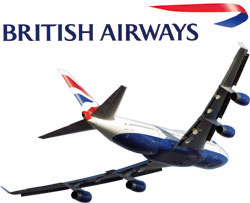Airline industry to pledge radical emission cuts at summit, says BA
 London - The international airline industry has agreed to slash carbon dioxide emissions to half their 2005 levels by the year 2050, British press reports said Tuesday.
London - The international airline industry has agreed to slash carbon dioxide emissions to half their 2005 levels by the year 2050, British press reports said Tuesday.
The Guardian and other media said the announcement would be made by British Airways (BA) chief executive Willie Walsh at the United Nations (UN) climate summit in New York Tuesday.
The paper said the measures were an attempt by the airlines to seize the initiative from environmental groups demanding higher taxes on the industry.
The move proposed by the airlines would mean increased air fares and was likely to trigger a race for green technologies among aircraft manufacturers.
"International aviation emissions were not included in the Kyoto protocol 12 years ago. Now we have a chance to rectify that omission, and we must seize it," Walsh will tell the one-day conference.
"Our proposals represent the most environmentally effective and practical means of reducing aviation's carbon impact. They are the best option for the planet and we urge the UN to adopt them."
According to The Guardian, the proposals drawn up by members of the International Air Transport Association (IATA) are to reduce net carbon dioxide emissions by 50 per cent by 2050, compared with 2005 levels.
The industry will pledge to cut carbon dioxide emissions by 1.5 per cent per year over the next decade and to submit plans for joining a global carbon trading scheme to the UN by November 2010.
It will also aim to make all industry growth carbon-neutral by 2020.
BA's head of environment Jonathon Counsell Tuesday described the initiative as "unprecedented."
While IATA represents 95 per cent of global airlines, the initiative also has the backing of manufacturers, the airlines and the air navigation providers, said Counsell.
"This is, we believe, significant in increasing our chances of success at the Copenhagen climate change summit. We believe this is absolutely the best option for the planet."
Advanced aircraft technology and the use of biofuels would play a big role in the scheme, said Counsell.
But campaigners from the Aviation Environment Federation (AEF) claimed that the move was designed to head off the threat of increased taxation on the industry.
Spokesman Jeff Gazzard described the initiative as "a PR effort to avoid the truth."
"The motivation behind this is that the aviation industry is scared of emissions trading," Gazzard said in reference to a European Union (EU) scheme.
"We know they don't like taxes and emissions trading is a tax by another name. Eventually, aviation is going to have to pay the cost of its climate change impacts," he said.
The aviation industry is responsible for 1.6 per cent of global emissions of greenhouse gases. But it will become the biggest emitter in the developed world if emissions continue to grow at their current rate.
However, Counsell said flying was fundamental to economic success and enriched people's lives.
"We believe, with this target, we have an absolutely compatible position where we can meet our full contribution to global reductions in greenhouse gas emissions but still provide people with the freedom to fly when and where they want to," Counsell said. dpa